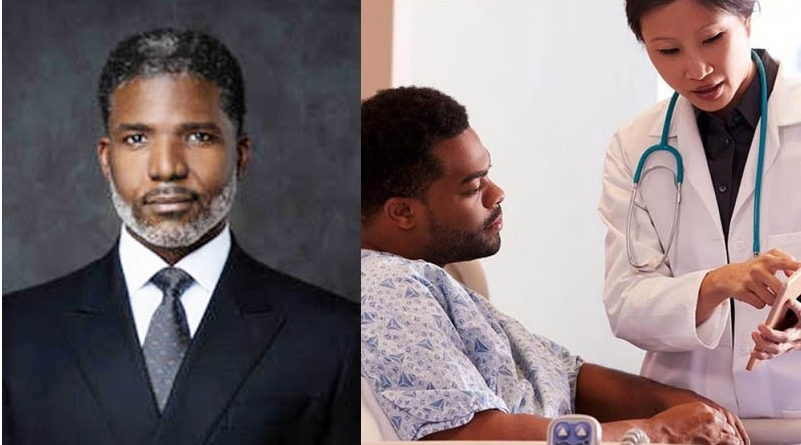
An Op Ed By Fredrick Echols, MD, Public Health Specialist and An Obama Foundation Global Leader
Why do so many men skip regular health checkups? As a Black man who has navigated the challenges of achieving and maintaining good health, I understand firsthand the critical need to eliminate barriers to care and improve access to healthcare services. Many men avoid regular checkups because of unfavorable past experiences with doctors, leading them to seek medical attention only when absolutely necessary. Improving men’s health outcomes is a complex issue that requires a collective approach—one that involves healthcare providers, institutions, families, and community organizations working together.
According to a national survey conducted in May 2022, one-third of men in the United States do not believe they need annual health screenings. This mindset underscores the urgent need for a community-wide effort to change perceptions and improve access to regular health care. Together, we can make a difference and ensure that men receive the care and support they need to lead healthier lives.
Prioritizing Outreach and Education
Healthcare systems and federally qualified health centers (FQHCs) should prioritize outreach and education to raise awareness about health issues and services available to men. Culturally sensitive and linguistically appropriate healthcare services are essential to ensure that all men, regardless of background, feel understood and respected when seeking care.
Reducing Financial Barriers
Financial barriers are a significant obstacle for many men, particularly those who are uninsured or underinsured. Health systems and FQHCs can offer sliding fee scales or other financial assistance programs to make care more affordable. Advocacy for policies that expand healthcare coverage and reduce out-of-pocket costs is also crucial.
Delivering Comprehensive Care
Men’s health encompasses more than just physical well-being. Mental health services, substance abuse treatment, and other supportive services are vital components of comprehensive care. A holistic approach ensures that men receive the necessary support to lead healthy and fulfilling lives.
Community-Based Support
Community-based organizations (CBOs) play a crucial role, especially for Black men who often face unique health challenges. CBOs can provide targeted support, including outreach, education, and services addressing social determinants of health. Advocacy for systemic changes to better meet the needs of men in their communities is also essential.
The Role of Families
Families are pivotal in supporting men’s health. Encouraging healthy lifestyle choices, such as proper nutrition, regular exercise, and sufficient sleep, is vital. Families can also motivate men to seek medical care when needed, accompany them to appointments, and help manage chronic conditions by ensuring medication adherence and follow-up visits.
A Call to Action
Improving men’s health outcomes requires a united effort. As someone who has experienced the challenges of accessing quality healthcare, I urge healthcare providers, institutions, and families to collaborate in removing barriers and increasing access to services for men. By focusing on outreach, cultural sensitivity, financial support, comprehensive care, and addressing social determinants of health, we can improve men’s health outcomes and build a healthier, more equitable society.
Men’s health is a multifaceted issue that demands attention and action from all sectors of society. By working together, we can eliminate barriers to care and ensure that all men have the opportunity to achieve and maintain good health. This collaborative effort is not just beneficial for men but for the well-being of our entire community.
Dr. Frederick Echols, MD, is available as a subject matter expert on public health for press interviews and speaking engagements.
Original article from STL Argus News click here.
